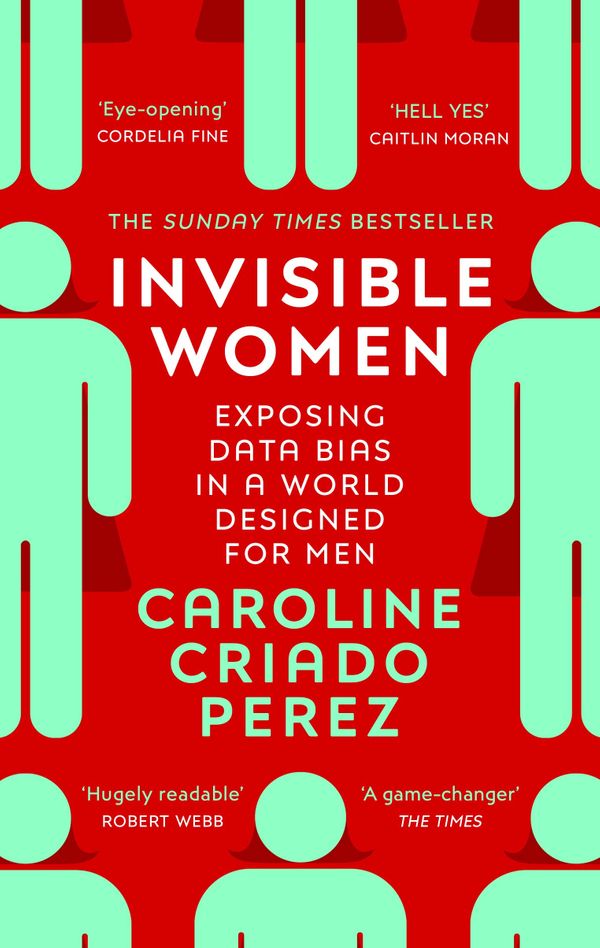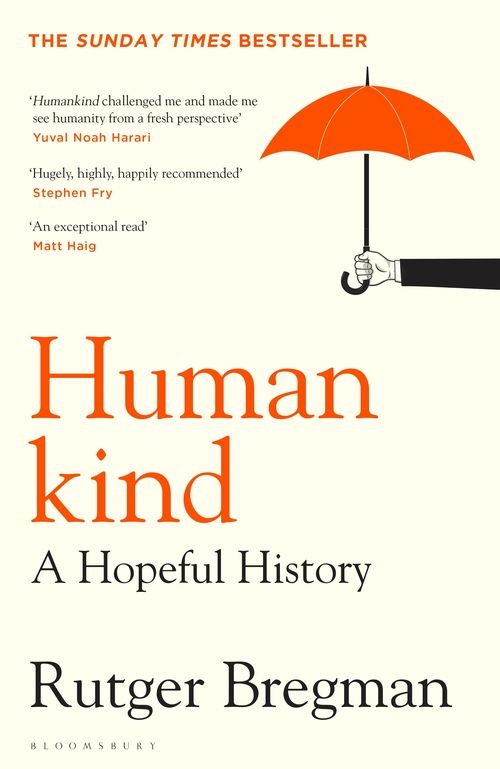By Caroline Criado Perez (2019)
Pages: 411, Final verdict: Must-read
Reading about discrimination, unfair labour, and prejudice against women became normal. We can surprisingly see that gender inequality is still hardly understood by many following such reports. The same people claiming that significant progress has been made are those who forget how fragile it is. The small gains towards gender equality can be easily rolled back. Look at what a pandemic did - women were pushed back to traditional roles during the lockdown and put in the middle of a childcare crisis that led their way into massive layoffs. Such evidence can only mean that the foundations of our society are profoundly unequal.
Against facts there are no arguments
More than two thirds of men in Britain believe that men and women enjoy equal opportunities. It was during an activism movement about having a female figure in the back of a banknote that the author, Caroline Criado Perez, heard "Women are everywhere now!". While this exemplifies the unspoken consequences of the society we live in, it also shows how people think that gender inequality is a problem from the past.
Invisible Women by Caroline Criado Perez is a cornucopia of data proving otherwise. She doesn’t blame men or the legacy of our laws. Instead, she takes the case against gender data gaps and proves how these have been hurting women for a long time. She shows how structural inequality is by pointing gaps in various fields such as:
- Public bathrooms area - Men take less time urinating, are less prone to have urinary infections, and have less reasons to use the toilet - there’s no such thing as pregnancy or menstruation in men. On top of this, women take 2.3x longer than men in toilets. But we still grant both genders the same bathroom area. It’s no wonder that women are the ones waiting in line.
- Automobile health - Women have significantly higher odds of getting seriously hurt in car crashes. Automobile safety tests use a "Reference Man" model nowadays even though women have been driving for decades now, except for the Saudi Arabia women that were only granted this right in 2019. We are allowing an outdated model to murder any of the 70% British women holding a driving license.
- Offices temperate - It's a 1960s formula that determines offices' ideal temperature and grants women a 50% higher chance of feeling cold at work. Women' metabolism is slower than men, something that hasn't changed in 70 years but that keeps being forgotten.
Caroline Criado Perez owns the mission to clarify how and where inequality stands using dense and clear arguments. The book invites the readers to start with what women face today, a solid corrective to the ones thinking that gender no longer matters. Caroline Criado Perez's first sentences lay out in an impressive detail how Sweden, a country leading by example in many ways, struggles to deal with gender inequality. She targets the cities’ urban planning to demonstrate how women are condemned to spend 3x more time than men in unpaid activities like house caring and taking kids to school.
Labour inequality comes as a result of such disproportionality of time dedication, which Caroline Criado Perez approaches in the book’s second chapter, following by consequences on women’s health, wealth and public life. Women have fewer chances of building a successful company or to keep a stable and well-paid job. In the UK, women represent 70% of the unpaid caretakers of sick people with dementia, 61% of the people below subsistence wage level, and 75% of the part-time workers. Such structural deficiency can only be fixed with public policies. Basic equality measures such as paid maternity leave are not ensured in all countries - USA is the most flagrant case - and when implemented, there are flaws that harm women even after retirement. Caroline Criado Perez guides the reader through the complicated world of politics and cultural bias, showing how women are harmed by the traditional recruitment and performance evaluation frameworks. The interpretation of the women’s posture is surprisingly misleading - the same attitudes that classify a man as "determined" can label women as "aggressive or emotional". Such bias in the present leads the author to explore how women are condemned to inequality in the future.
The last chapters of the book are dedicated to women’s future under big data and in the age of algorithms. Our society is increasingly dependent on software and data is becoming the holy grail of business. It’s no surprise that voice recognition software often struggles to respond to women when only 11% of the executives and 25% of the workforce in the tech industry are women. The algorithms that shape our society are built mostly by men and fed with datasets lacking women data. This is why Caroline Criado Perez is ruthless claiming that patriarchy bias will automatically continue to grow unless we take corrective measures to fill the gender data gaps. Who has the power to rebuild better?
Bottom Line
Data doesn't lie and Caroline Criado Perez has no intention to build a conspiracy theory.
The outstanding amount of examples in this book, ironically against its argument of lacking women data, is a great way of getting the facts right. The common ground to a serious and structural discussion about the unfairness women have to deal with can only come through the lens of data, even though this book can be overwhelming at times.
It’s a callout for everyone, from the decision-makers in business to health regulators, to collaborate on something that almost seems radical nowadays - equal gender rights.
Further learning
- Coronavirus pandemic exacerbates inequalities for women, UN warns
- How coronavirus is widening the UK gender pay gap
- Why we have too few women leaders
- Caroline Criado Perez interview to Penguin Books



